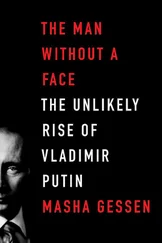“Did you ever ask your parents what was wrong with you?”
“Of course I did. They told me I was a biological child, I was not adopted, but I had been very seriously ill. I don’t know what it was—maybe there was something wrong with my heart. So they’d had to keep sending me away to make sure I could survive.”
Here was the only central character in this story to whom I could have unfettered access, and we seemed to have encountered a fundamental problem at the very beginning of its telling. From everything I could see, she had told me a classic adoption story, and now she was telling me it was not what it seemed. We all deal in personal and family myths and legends, we conspire to exaggerate and obliterate, but usually we make adjustments to the stories to make them believable (indeed, often true stories must be systematically altered in order to actually be believed). Never before had I been told a story that appeared to represent one event and been instructed to take it on faith that it actually represented another. This was going to happen again and again in my conversations with Yekaterina and her father.
Stanislav Samutsevich was a very tall man who looked younger than his seventy-four years. He also looked remarkably un-Russian: in a short-sleeved blue oxford shirt, gray belted slacks, and black loafers, he looked more like a retired American insurance salesman or midlevel IBM employee than a Russian engineer. We sat on a park bench in central Moscow; like many Russians his age, he had not adopted the Western habit of meeting in cafés.
“She had a problem with her kidneys,” he said when I asked him about Yekaterina’s early childhood. “She was in working condition by the time she was five, so that was when we collected her. It was possible to take care of her, and now she is a physically healthy child.”
He was talking about a thirty-year-old woman.
“Sure, she is physically underdeveloped,” he continued.
If I was able to stifle my reaction when Samutsevich called his grown daughter “a healthy child,” I must have failed now: he clearly noticed I had cringed at the word underdeveloped . Yekaterina was five feet tall and had broad hips that made her look stockier than she was. She had an angular way about her and could sometimes look awkward, but she was by no means “underdeveloped.”
“It’s just that everyone in my family is large,” explained Stanislav Samutsevich.
———
ONCE SHE WAS HOME, Yekaterina had an ordinary childhood. She was a lonely girl growing up in a lonely family of lonely people, a late-Soviet version of any American novel of suburban desolation. Her parents had an old-fashioned sort of mismatch: the father hailed from an educated and well-placed Moscow family, while the mother came from the Ukrainian countryside. He felt embarrassed by her and she felt oppressed by him. She spent her days teaching drawing at the school Yekaterina attended—a regular neighborhood school, like scores of other schools around Moscow—and her evenings and summers in the kitchen.
“She was brought up conservatively—that the woman’s place was in the kitchen,” Yekaterina told me. “And my mother really did work at home her whole life. I mean, she worked around the house. Always cooking, cleaning. My father never did a thing, from what I understand. And she was always resenting him for that. She would say, ‘He is an intellectual, what are you going to do.’ In the summers we lived at the dacha, and I would see it: the summer, the heat, and she and my aunt are always cooking. Making preserves too, and other strange things. I didn’t understand what it was all for. But she told me, ‘Your life is going to be like this. You’ll spend it in the kitchen.’ I looked at it all in horror. And I view it negatively now.”
Stanislav had other ideas for his only child: he steered Yekaterina toward his own field of computer programming. She graduated high school with a gold medal, given to straight-A students. “It was easy enough,” she told me. “I was surprised other people didn’t have gold medals.” She paused. “And then they started pressuring me to go to college.” The Moscow Institute of Power Engineering seemed as good a choice as any. It also took Yekaterina out of her dreary southeastern Moscow neighborhood for the first time since she landed there at the age of five; at least during the daytime hours she spent at the institute, she saw something other than the permanent traffic jam that had been the view from her apartment and school windows throughout her childhood.
The summer after her first year of college, Yekaterina lived at the dacha with her mother; her father worked, splitting his time between Moscow and the countryside. One day her mother, who was standing at the stove as usual, collapsed with a massive heart attack. Yekaterina called her father and her aunt and an ambulance, but by the time anyone came, her mother was dead. Yekaterina tried not to go to the dacha after that.
She spent six years at the institute, getting a master’s degree, and then left instead of pursuing a Ph.D. “I was disappointed to a certain extent. The department had outdated equipment, my adviser was ninety years old, and I didn’t think this was a very good sign. Naturally, he died soon, and there was no one left, literally, except for a single professor. The state just did not want to invest in attracting people to working in research. So I decided to get a job. And since I didn’t have any work experience, I just started going around from one research institute to another, looking for someplace willing to let a student in.” This was the mid-2000s; young Russians with Yekaterina’s credentials were getting jobs at Google, its hip Russian competitor Yandex, or any number of other high-tech firms that were actively recruiting engineers. But that was in a different, contemporary Moscow: Yekaterina was, like her father, still living in the Soviet city of her childhood, where engineers toiled at research institutes. Or rather, they usually worked at Ministry of Defense outfits behind the facades of research institutes—and that is exactly the kind of place where she found work.
The Agat Institute was a God- and state-forsaken outfit inhabited by dead souls and a few disoriented live ones like Yekaterina, who was put to work developing software for the weapons-control system of a nuclear submarine. This particular submarine had been under construction in fits and starts since Yekaterina was nine years old and the USSR still in existence. Now, ten years past its original deadline, it was earmarked to be leased by the Indian navy—if and when it was ever completed.
In 2007, construction of the submarine was largely finished and engineers were needed on site for the final adjustment and testing process, which was expected to last about a year and a half. Russian authorities were haggling with India—the price tag kept growing and the deadline kept getting pushed back—and the engineers were coming under pressure too. This was when Yekaterina quit.
“I was completely disappointed there too,” she told me. “For all the same reasons: corruption, the state’s lack of desire to invest in quality military equipment. Programmers got very low pay, while project leaders, who weren’t doing anything, just watching the security clearances, got a hundred thousand rubles [about three thousand dollars] a month. And the people who never showed up but were making sixty thousand. And you went to work and you didn’t know who you reported to or what you were supposed to do.”
What Yekaterina remembered as her first stern act of rebellion, her father remembered differently: “When she was supposed to go to the Far East for equipment testing, I wouldn’t let her go.”
“What do you mean, you wouldn’t let her go?”
Читать дальше












